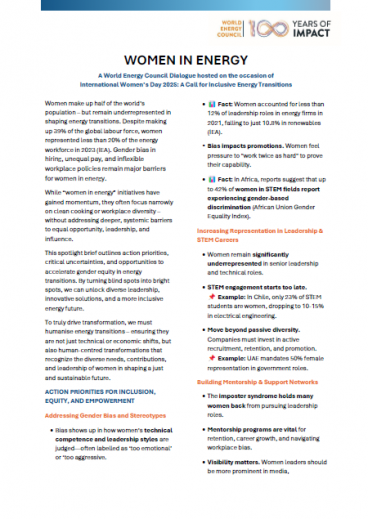Rudy graduated in Economics from the Autonomous University of Santo Domingo (UASD), in addition to obtaining two diploma degrees in formulating and evaluating projects. He was president of the Central American and Caribbean Chapter of CIER (CECACIER), member of the Dominican College of Economists (CODECO).
He has held many positions in the last 20 years, including Purchasing Manager of the Haina Electricity Generating Company (EGE-HAINA), the Financial Manager of the Dominican Hydroelectric Generation Company (EGEHID). He is currently the Director of Electrical Market of the Dominican Electric Transmission Company (ETED).
What are your immediate top priorities for your new member committee?
Our first priority is to widen our membership base to incorporate organisations from local authorities within the country. Second, we are developing a robust campaign to encourage private and public companies related to the energy sector to join our committee and strengthen it with the inclusion of the largest number of organisations within the DR energy sector, and academies to create research spaces. Thirdly, to design a programme of seminars and public activities for 2018.
The DR committee is dedicated to the diffusion of the energy Trilemma and generating innovative ideas that contribute to a more affordable, stable and environmentally sensitive energy sector
Currently, the DR electric sector is going through a new wave of reform transitioning from a vicious circle to a virtuous circle, which will contribute to resolving the financial deficit currently within the sector. In October 2017, all the sectors of the country agreed on a pact which contains medium-term actions that the government, private sectors, trade unions and the public in general, must undertake to achieve proposed goals.
How do you think the Dominican Republic committee will raise the profile of the energy sector within the Caribbean region?
The only other Spanish-speaking countries are Cuba and Puerto Rico, the others are members of the English-speaking CARICOM, with whom we do not have economic relations. In the Caribbean context we are not integrated with the other islands.
At present, DR develops a face-to-face agenda in all Caribbean countries, especially Spanish speakers. DR currently holds the presidency of CECACIER, and also is one of the countries with an active role in the Central American Integration system (SICA).
Extreme weather events have been affecting the Latin American and Caribbean region, what plans does the Dominican Republic have to combat such issues?
This season, extreme weather events have caused severe damage to the entire infrastructure of all Caribbean countries, the least affected was DR but we have had major problems with flooding due to the amount of rain. All affected countries within the region are currently working on improving their infrastructures to limit the damage. DR is working towards establishing, as a priority, a revision of the standards of construction of lines and substations.
Are there any major emerging trends affecting the energy landscape within the region?
At present, there are no significant restrictions on the installation of a new generation. The country aims to diversify further its energy matrix and which is giving the final concessions to various investors. Currently there is a limitation on the installation of new generation near tourism hot-spots and national parks.







_-80_result_688_387_s_c1_c_c.jpg)

